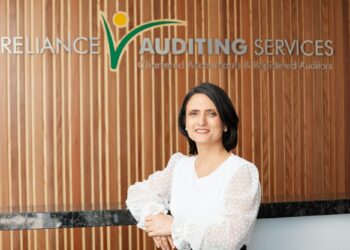Earlier this year, the Accounting Professional & Ethical Standards Board, in collaboration with the accounting bodies, published a new independence guide which incorporates changes to the restructured APES 110 Code of Ethics for Professional Accountants.
The independence guide makes it clear that an auditor cannot audit an SMSF where the auditor, their staff or firm has prepared the financial statements unless it is a routine or mechanical service.
In a recent CPA podcast, ATO director Kellie Grant explained in order to meet this definition of “routine and mechanical”, the SMSF trustee would need to show that they created all the fund transactions and provided a trial balance to their fund, administrated by them and uploaded into their system.
“Any financial statements produced would be based on those trial balance figures by the trustee. So, clearly [in that situation] the accountant has made no judgement as to how certain items should be classified in the fund’s accounts,” Ms Grant stated.
“We really don’t think there would be many trustees with the skills and knowledge to take on the responsibility of the financial statements in this way.”
Ms Grant said that some in the industry have argued that financial statements prepared on the basis of recurring transactions such as data feeds can meet the routine and mechanical requirement.
“They’ve argued that no judgement is required by the accountant when preparing the accounts using those data feeds,” she noted.
“Others have also argued that if the fund has simple investments such as listed shares and cash, then the account would surely be routine or mechanical.”
Ms Grant stressed that just because the fund is mainly invested in assets that are on data feeds through SMSF-specific software or have simple investments, the trustee still needs to show they’ve taken on the responsibility for those financial statements by pre-approving every single fund transaction and the appropriate account classification for that transaction, rather than to approve them after the fact.
“We also often find that the firm was responsible for setting up the accounting software which classifies the transactions from the data feeds, and of course, we all know that mistakes can be made with those data feeds which normally the firm takes responsibility for rather than the trustee,” she added.
It is often the case, she said, that SMSF administration firms that prepare the accounts for funds, even if it’s through data feeds, are still in fact making decisions on behalf of the funds, such as developing certain tax strategies or helping with fund compliance.
“For example, those types of firms may advise on how a trustee can maximise their concessional or non-concessional contribution limits or they might advise on when is the best time for the trustee to commence a pension. They might also develop structures and strategies for trustees to make investments in unrelated or related parties in order to avoid breaches of certain rules,” she explained.



This just goes to show how out of touch with reality both the ATO and the APESB are.
Preparing financial statements from a trial balance is what auditors used to do in the 50’s, which is likely when the person who recently re-wrote APES 110 retired from the profession and started working for the APESB!
As for the ATO, if you can find a typical trustee who prepares their own financial statements to trial balance stage, good luck to you.
If this is the definition of “routine and mechanical” and the ATO’s position, then why are we even wasting time talking about this?
I for one can’t wait for the restructured APES to be taken seriously. As a SMSF auditor I cannot remember the amount of accounting firms I have approached to prepare smsf audits only to have been met with ‘we have an auditor in-house already thank you”.
Yes and no. Data feeds come from systems that are not generally ‘double entry’ which is what accounting systems are. However, some data feeds are very strictly prescribed in that the administrator receives the transactions already allocated to the general ledger account type – contributions reconciled, pensions and lump sums allocated between members and direct transfers narrated. In these cases, perhaps the administrator is just transferring data from the investment management system to their accounting system that produces the financials. However, even for these types of arrangements, there will be exceptions where something is queried. This is when the production of the financials is no longer ‘routine and mechanical’. I think there is some nuance here and, a ‘one stop ship’ isn’t in play.
If you accept that (in some cases) data feeds can be a system to system production of financials, the next stage of SMSF audit requirement uplift will be in providing assurance of the system integrity of the accounting software used to produce the financials. I think this is likely to become more into focus in the future. meanwhile, the non-market based investment portfolio – real property, all things unlisted, related party, IHA – will never be routine and mechanical regardless of the system that manages the transaction data.